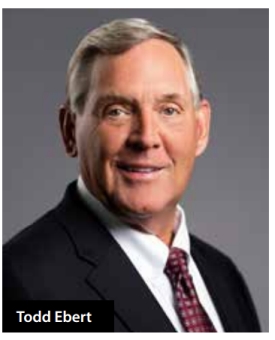HSCA
By Todd Ebert
An overwhelming amount of research and real-world evidence has repeatedly affirmed what I’ve known to be true over my nearly 40-year career in healthcare: GPOs deliver cost savings, promote competition and transparency, advocate for innovative and common-sense policy solutions, and help their customers anticipate and respond to an ever-evolving healthcare landscape. While the challenges faced by providers are continuously changing, one thing has remained constant — the critical role GPOs play in helping providers care for their patients.
GPOs deliver cost-savings to the healthcare system. This is a settled matter, having been repeatedly studied by economists, industry, and in independent academic settings. GPOs save hospitals, Medicare and Medicaid, and taxpayers up to $55 billion annually. A 2018 study by the Wharton School and American Hospital Association found that hospitals are overwhelmingly satisfied with their GPO cost-savings.
GPOs promote competition in the procurement services market. In 2017, former U.S. Federal Trade Commission Chairman Jon Leibowitz examined the GPO market and determined that GPOs improve efficiency and reduce costs in the supply chain for healthcare providers, patients and taxpayers by negotiating lower prices and lowering transaction costs. Providers voluntarily decide whether to join a GPO; they can choose from multiple GPOs; and they commonly use multiple GPOs simultaneously. Providers often own their GPOs, and they can also procure supplies directly from vendors. As a result, the supply procurement market is highly competitive.
GPOs are the most transparent industry in healthcare. GPOs disclose all administrative fees in writing to members at least annually; any GPO fee above 3 percent must be included in the contract agreement; GPOs make all fee information available at the request of the Secretary of Health and Human Services; and hospitals must report GPO fee distributions as part of their Medicare cost reports.
The GPO industry has been a positive advocacy force, promoting common-sense, innovative, market-based solutions to help providers confront the myriad challenges facing the healthcare supply chain. GPOs have joined other leading healthcare organizations in supporting the CREATES Act, legislation that will help increase competition in the generic drug market by eliminating a loophole that allows brand-name drug makers to engage in unfair delay tactics. GPOs successfully advocated for expedited FDA review and approval of abbreviated new drug applications (ANDAs) for products where there were three or fewer manufacturers, and provided feedback to the DEA regarding a proposed rule on annual opioid production limits.
GPOs’ line of sight across the healthcare system means they are unparalleled in their ability to help their customers anticipate and respond to evolving challenges. While cost-savings and delivering the best products at the best value remain central to the GPO core mission, hospitals and healthcare providers are increasingly relying on GPOs for a broad range of services integral to cost-effective patient outcomes, including, but not limited to, emergency preparedness and disaster response, drug utilization and healthcare cybersecurity.
As I retire after nearly 40 years in healthcare, I leave proud to have worked in an industry dedicated to problem-solving for America’s healthcare providers so they can focus on their mission of delivering high-quality, cost-effective care.
Todd Ebert, R.Ph., is the President and CEO of Healthcare Supply Chain Association (HSCA)

